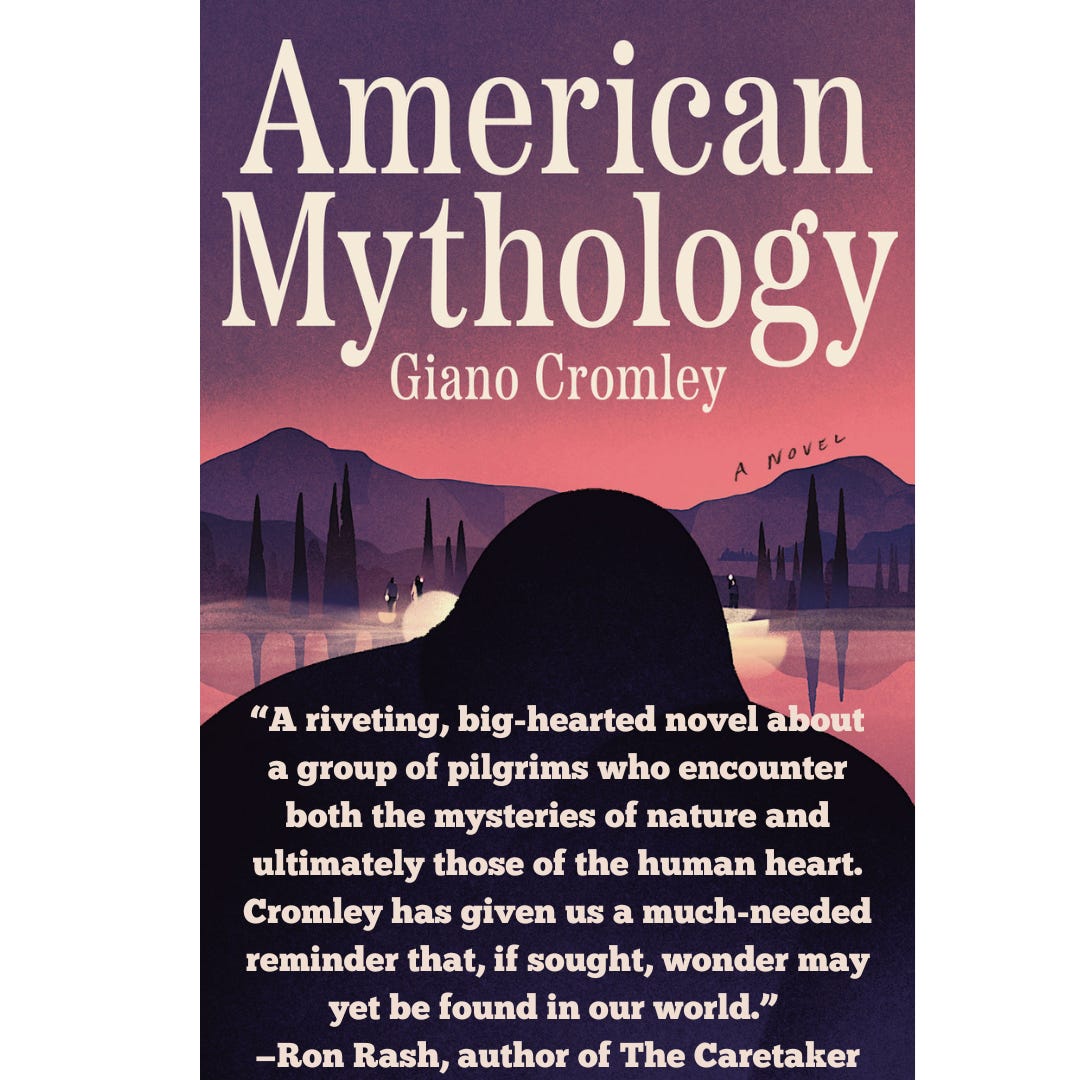Greetings Fellow Mountaineers,
I went through another set of line edits on American Mythology since you received Volume V of this semi-sporadic epistle. This past round was the shortest set of revisions yet and mostly consisted of me responding to a dozen or so headache-inducing questions posed by the copy editors.
For example, they noted a short paragraph in which I used the word “felt” twice.
Vicky felt a static charge between her shoulder blades as she spoke these words. It felt like an incantation, like the casting of a spell.
Any writer worth their salt will tell you word repetition like this is less than ideal. Yet every possible way I could find to resolve the issue caused problems elsewhere. If I substituted one of the felts with what seemed like its most natural replacement, it turned out I’d already used that word nearby.
Pondering these challenges reminded me how well-constructed paragraphs are like a row of dominos. Every word has a specific place and function, and if you take one out or alter it in any way, the whole thing begins to fall apart.
Ultimately, I went with a pretty thorough retooling of the paragraph:
A static charge sparked to life between Vicky’s shoulder blades as she spoke. The words felt like an incantation, like the casting of a spell.
To my eye, this is a big improvement over what I can now admit was some pretty lazy writing. This version has more buoyancy, more kinetic energy. It’s for these reasons I’m grateful to have such careful editors going over my work. They’ve definitely pushed me to elevate my game.
Many headaches later… that draft has been submitted and now the manuscript is out in the world and finding its way into reviewers’ hands. I’m hoping those people like it as much as the amazing writer Ron Rash does:
Pun Poll:
Close readers of last month’s newsletter’s footnotes will have noted that I ran a contest for whomever could come up with the best pun related to this copyedit note I’d received:
In another case, the copy editor noted a chronogical discrepancy by breaking down the relative amounts of time it would take for one character to run a load of laundry while another one was supposed to be simultaneously cooking a scrambled egg. [Insert egg pun here1]
And the footnote:
1 Seriously, I’ll make and send a free cutting board to the reader who comes up with the best egg pun for that paragraph. The top entries will be selected by me and the winner will be determined by a poll in next month’s Volume.
Obviously, coming up with a pun that is both egg- and laundry-related is not for the faint of heart. But I’m pleased to report that I received two entries.
Option 1: “Did someone try to poach your load of wash?”
Option 2: “Looks like you're having to scramble to make corrections due to the laundry list of errors.”
Both worthy offerings, I must say. And you, gentle readers, can now choose the winner:
As promised, the winner will receive a cutting board made in my wood shoppe, so vote wisely!
Recommendation:
My recommendation this month is a book: The God of the Woods by Liz Moore. The premise alone convinced me to pick up a copy:
Early morning, August 1975: a camp counselor discovers an empty bunk. Its occupant, Barbara Van Laar, has gone missing. Barbara isn’t just any thirteen-year-old: she’s the daughter of the family that owns the summer camp and employs most of the region’s residents. And this isn’t the first time a Van Laar child has disappeared. Barbara’s older brother similarly vanished fourteen years ago, never to be found.
I had high hopes for this book going in. And it exceeded those hopes in almost every way. It’s an engrossing mystery (double-mystery, actually) that manages to not feel contrived. It’s a police procedural with none of the heavy-handed tropes that can weigh those stories down. It’s a meditation on the power of nature and the immenseness of our wildest places. And it’s a study on the socioeconomic stratification that takes place in rural areas, demonstrating how class divides create two sets of rules, depending on whether you’re a have or a have-not. Take this line:
Rich people, thought Judy—she thought this then, and she thinks it now—generally become most enraged when they sense they’re about to be held accountable for their wrongs.
So good!
I won’t go into detail on how the story resolves itself. I’ll only say that I found the ending to be immensely satisfying, which is a hard feat to pull off in these types of books. Highly recommend!
Until next time…
—Giano


